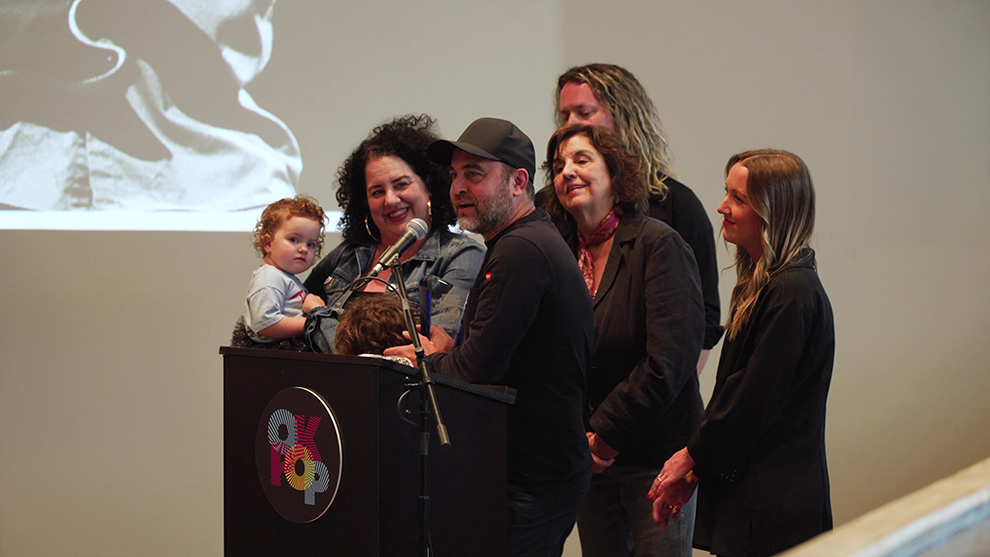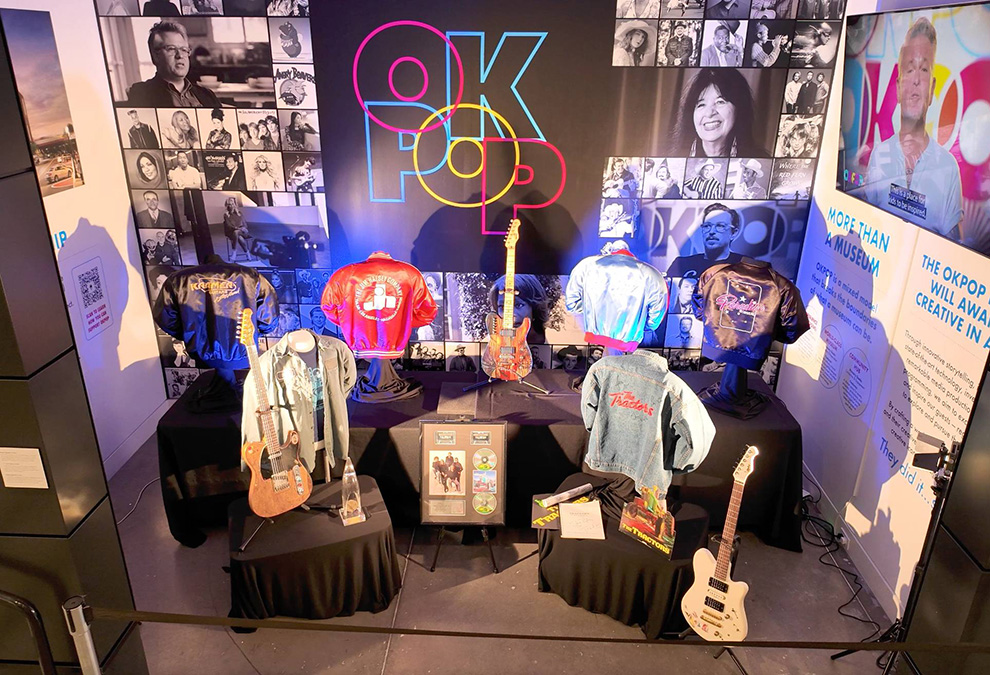It was a night that brought the heart of Oklahoma’s music history to life. Through stories, performances, and tributes, the event captured not only Ripley’s brilliance but the very spirit of OKPOP’s mission: to celebrate Oklahoma creativity and preserve it for generations to come.
“Steve Ripley was a legend in Oklahoma music,” said Trait Thompson, Executive Director of the Oklahoma Historical Society. “To see him honored the way he should be, surrounded by friends and family, it was a really heartwarming night.”
From surprise anecdotes about Bob Dylan asking Ripley to sing onstage in 1981, to tales of DAT tapes, demo myths, and impromptu Beatles-style string arrangements, the evening served as both a love letter and a living archive.
“He was not just a musician or producer, he was an engineer, an inventor, a mentor,” said Bob Blackburn, former director of the Oklahoma Historical Society. “If you were a friend of Steve Ripley, you were part of his family. He wanted to be part of music, not just perform it. That was his life.”
Among those in attendance were Grammy-nominated songwriter Tim DuBois, who inducted Ripley into the Hall of Fame; musician Isaac Hanson, who shared stories of late-night sessions with Ripley at the Church Studio; and Ripley’s family including Ripley’s wife, Charlene, daughter, Angelene, son, Elvis, and grandson, Mickey Wright, whose touching tribute left the room in tears.
“My grandpa Steve Ripley was a great grandpa,” Wright said. “And he loved me for the rest of his life… but the saddest part of my life is that he died. I’ll miss him for the rest of my life.”
Also present were community leaders and music scholars who helped frame the historical and cultural significance of the night.
“His influence on Oklahoma musicians is immense,” Dr. Hugh Foley, Professor of Fine Arts at Rogers State University and founder of the Oklahoma Music Hall of Fame, said. “From inventing guitars and pedals to working with legends like [Bob] Dylan, Eddie Van Halen, and Leon Russell, his reach was wide. But it was his spirit that stood out: deeply rooted in Oklahoma, fiercely creative, and always striving for excellence. He was a perfectionist, and I think his legacy gives us all a model: remember where you came from, do your best work, and celebrate the art. That’s what Steve did.”



